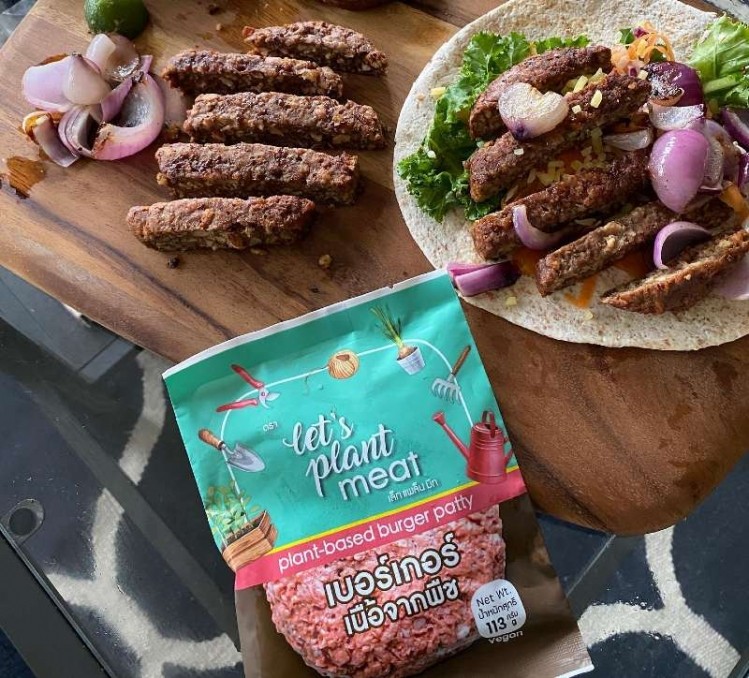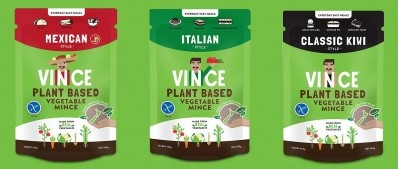Multicultural versatility: Let’s Plant Meat makes first overseas debut in Singapore with launch of nation’s ‘most affordable’ plant-based meat

When we last spoke with Let’s Plant Meat CEO Smith Taweelerdniti, he told us how affordability was a key component of its initial local launch strategy in Thailand, and the firm has remained true to this with its first overseas venture into Singapore.
“We’re based here in Asia so the cost is not as high [as many of our competitors], and we did not want it to be high either as we want it to be affordable to the masses,” Taweelerniti told FoodNavigator-Asia.
“Singapore is a great launching market as people welcome novelty and are concerned with sustainability and healthier choices, all of this is important to push plant-based but in Asia in general, it’s very important in this market that the food taste good and also be affordable in order to get good reach.”
Let’s Plant Meat’s first launches into Singapore are its burger patties and minced meat, made with soy, rice, coconut and beetroot.
Both Taweelerniti and local partner Marc Tay from local meat firm CS Tay Foods, say they examined the pricing of similar plant-based products to assure they are the most affordable on the market.
“Let’s Plant Meat’s products are definitely the cheapest in Singapore at the moment – in general we sell at S$4.20 (US$3.15) a portion full price, which is cheaper than others’ offer prices,” Tay said.
“So for instance, Beyond Meat is currently selling its burger patties at an offer price of S$13.90 (US$10.41) for a two-piece pack, whereas two Let’s Plant Meat burger patties are S$4.20 per piece or S$8.40 (US$6.29) for two pieces – so at full retail price, we’re still about 40% cheaper.
“For Impossible, we’ll compare the mince meat as that’s their main product – this was recently repriced in Singapore at S$11.90 (US$8.91) for a 340g portion and there’s a relaunch offer going on at S$9.90 (US$7.41).
“A regular portion of Let’s Plant Meat’s mince is about 150g, but if we calculate a 340g portion, the regular price is about S$9.50 (US$7.11), just a little cheaper but we’re running an offer where any two portions (mix and match patties and mince) will go for S$7.55 (US$5.65), and that puts the mince as low as S$8.60 (US$6.44) per 340g portion, not to mention there’s also an initial buy two get one free promo.
“The closest we’ve seen so far is Omnimeat selling at S$7plus (US$5 to US$6) for 230g mince, but we’re still cheaper at S$6.45 (US$4.83) for 230g. So overall, Let’s Plant Meat is currently the cheapest available plant-based meat available locally.”
Let’s Plant Meat’s product retail sizes come as 130g burger patties and 150g mince meat packs, somewhat smaller packs in order to allow consumers to ‘take the risk and give new products a try without needing to worry about huge packs’, according to Tay.
In addition to pricing, the other main area of focus for the brand will be on its versatility – one of the main ways they aim to showcase this is by launching another line of ready-to-eat meals and products under the CS Tay brand, but with an on-pack label stating ‘made with Let’s Plant Meat’.
“We believe that it is important to show consumers that the product stands out by being more Asian flavoured, and also is versatile enough to meet the dietary needs of a multicultural society such as in Singapore,” said Tay.
“Many plant-based brands go the high-end restaurant route but we’re looking beyond this to reach more people so the team is also working on a line of RTE convenient foods which will cover multiple cuisines from Chinese to Indian to Western, so from curries to pizza toppings to baked rice and more.”
Let’s Plant Meat is currently available in 35 NTUC FairPrice outlets across Singapore – according to Tay, these are the 35 ‘better-selling’ stores to start with, and more expansions are coming soon, both to more outlets as well as other retailers they are in discussions with.
Meat type and marketing
Although most plant-based products tend to choose to be classified as a certain type of meat e.g. beef or pork to avoid consumer confusion, Taweelerdniti told us that the firm made a conscious decision to not do this with its initial products.
“All our products are halal certified, and we decided to just call our mince for instance ‘plant-based mince’ as opposed to say pork or beef, as the former could be taboo in some Muslim countries whereas the latter would be a hard sell in places like India,” he said.
“What we want is to make communal offerings where people with different ethnicities can all enjoy it, whether their diets are kosher, halal, Sikh or anything else – the focus is on availability and choice, and we don’t want to spend this focus trying to tread around religious cultural beliefs, that’s not the way to do this.
He stressed that this does not mean that there won’t be any specific meat products in the future, as the firm is also looking at things like meatballs and pork cutlets, but for a versatile and universally used product such as mince, the hope is to avoid any contention.
As for marketing, apart from all the offers and promotions to attract consumers via the low price point, Tay added that the firm will also be focusing on social media marketing such as via Facebook in addition to working with Key Opinion Leaders (KOLs) and celebrities to get the word out.
“We’ll also be working with celebrity chefs to do some cooking shows, such as Chef Eric Teo soon and also chefs from other ethnic communities specialising in other cuisines later this year, [again showcasing the multicultural] versatility of this product,” he said.
















